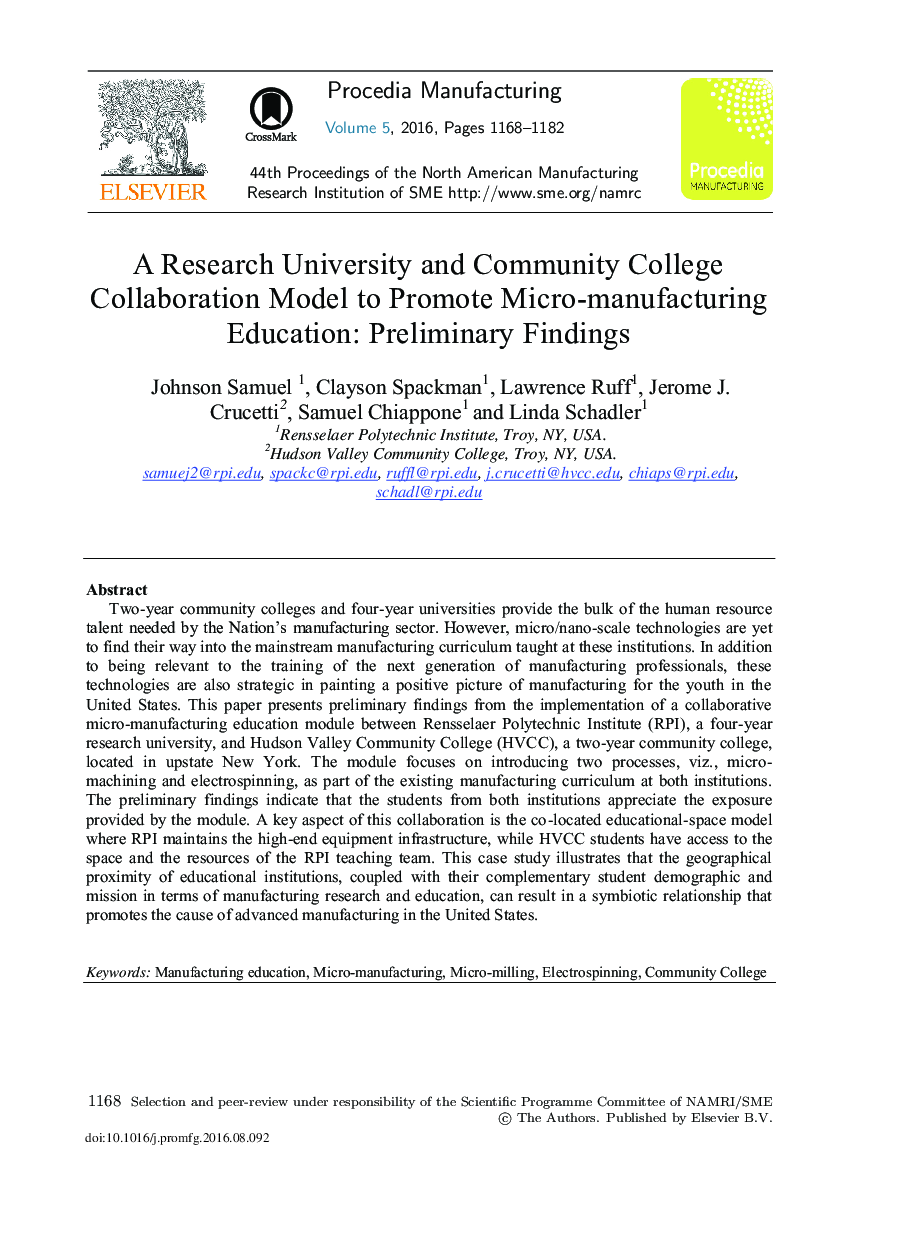| Article ID | Journal | Published Year | Pages | File Type |
|---|---|---|---|---|
| 5129092 | Procedia Manufacturing | 2016 | 15 Pages |
Two-year community colleges and four-year universities provide the bulk of the human resource talent needed by the Nation's manufacturing sector. However, micro/nano-scale technologies are yet to find their way into the mainstream manufacturing curriculum taught at these institutions. In addition to being relevant to the training of the next generation of manufacturing professionals, these technologies are also strategic in painting a positive picture of manufacturing for the youth in the United States. This paper presents preliminary findings from the implementation of a collaborative micro-manufacturing education module between Rensselaer Polytechnic Institute (RPI), a four-year research university, and Hudson Valley Community College (HVCC), a two-year community college, located in upstate New York. The module focuses on introducing two processes, viz., micro-machining and electrospinning, as part of the existing manufacturing curriculum at both institutions. The preliminary findings indicate that the students from both institutions appreciate the exposure provided by the module. A key aspect of this collaboration is the co-located educational-space model where RPI maintains the high-end equipment infrastructure, while HVCC students have access to the space and the resources of the RPI teaching team. This case study illustrates that the geographical proximity of educational institutions, coupled with their complementary student demographic and mission in terms of manufacturing research and education, can result in a symbiotic relationship that promotes the cause of advanced manufacturing in the United States.
